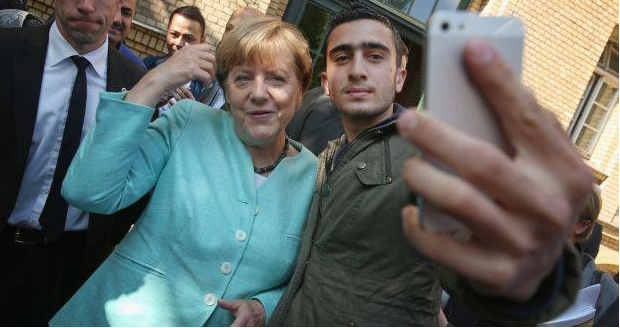Orthostatic tremor: it describes symptoms, not the disease! A symptom = a description.
tremor = a part or the whole body tremors. Multiple causes.
orthostatic = symptome that occurs when being stand up. Example: orthostatic hypotension, due to some medications, or to poor blood circulation, or to deshydration.
Here, what is the cause??
What I am posting is Research for Entertainment Purposes Only.
I have no authority nor license to give any medical, psychological, or life skills advice, I just have information to share, for entertainment purposes only.
Previous to my decision to “reunite” with the C’s discussion group, I worried, fretted, prayed, and meditated about how to discuss and share this knowledge, which is profoundly life changing.
I have been seriously “entertained” by the prospect that this information is based on Natural Laws.
The premise that all Biological Living Beings on this planet are governed by these Laws, yet, we humans have been tricked into believing that Healing symptoms are Death sentences. How Hilarious is that?
So, the questions “What’s wrong with her?” and yours, Nature: "What is the cause??"
First, this info is sort of a foundation:
“1st Criterion: Every “disease” - hereinafter called
Significant Biological Special Program (SBS) - originates from a
DHS (
Dirk Hamer Syndrome), which is an unexpected, highly acute, and isolating conflict shock that occurs simultaneously in the psyche, the brain, and on the corresponding organ.
2nd Criterion: The content of the conflict determines which organ will be affected and from which area of the brain the SBS will be controlled.
3rd Criterion: Every SBS runs synchronously on the level of the
psyche, the
brain, and the
organ.
NOTE: The abbreviation SBS derives from the German “
Sinnvolles
Biologisches
Sonderprogramm” (meaningful biological special program). The acronyms DHS and SBS are copyright protected.
A
DHS is an emotionally distressing event that we could not anticipate and for which we were not prepared. From a biological point of view “unexpected” implies that unprepared for, the situation could be detrimental for the one who was caught off-guard. In order to support the organism during the unforeseen crisis, a
Significant Biological Special Program on stand-by for exactly that conflict is instantly activated. The significance of this meaningful biological program of Nature is to improve the function of the organ so that the individual is in a better position to manage and eventually resolve the conflict. Since the DHS occurs at once in the psyche, in the brain, and on the corresponding organ, we speak in GNM of
biological conflicts rather than of psychological conflicts.”
The Five Biological Laws - The Foundation of GNM
This stuff gets complex, but it is learnable, but for entertainment only, remember!
From the website:
Leg muscles: not being able to escape, flee, or run away (literally or figuratively, e.g., from a workplace or a relationship), not being able to leap aside, not being able to follow, feeling rooted to the spot (petrified), feeling trapped (literally or figuratively), not being able to keep up, not being able to climb up (e.g., not being promoted), not being able to kick somebody away (extensor muscle), a fear of not being able to walk (
wheelchair image).
Skeletal Muscles
Then the bone stuff:
Hip and Femoral Neck: not being able to endure a situation because of unexpected or continuous demands (“This is too much to carry!”, “I can't manage!”, “I can't get through this!”). The
femur is linked to a
physical performance conflict.
Knees and Lower Legs: physical performance conflict, for example, difficulties walking or climbing stairs, not being able to keep up, a poor performance in sports (having lost a game, being put on the reserve bench, humiliating remarks by an instructor, not performing up to our standards or the expectations of a coach, parent, or spouse), feeling less mobile during pregnancy or because of having gained weight
Feet, Ankles, Heels, and Toes:
not being able to walk, run, jump, dance, or
balance; also, not being able to kick someone away in defense. The underside of the heel is linked to not being able to “crush” a person or a situation.
CONFLICT-ACTIVE PHASE: During the
conflict-active phase the affected
bone decalcifies creating gaps and little holes in the bone. The
location of the
osteolysis (“bone breakdown”) is determined by the exact type of self-devaluation conflict; the degree by the intensity of the conflict. The decalcification of the bone increases the serum calcium levels (compare with
hypercalcemia related to the
parathyroid glands); the loss of bone marrow that occurs together with the bone osteolysis alters the blood parameters (see
Anemia and Leukemia).
Bones & Joints
So, whatever her Psyche was shocked with,( Having watched and read News articles, there is plenty, only she knows for sure) that impacted her brain, affected her body, and now, her body is trying to recover.
My guess is that it seems that she may be stuck in a healing “track” since the tremors are not stopping. But, that is just an off the cuff guess, I have no authority!
For anyone interested, the info on this part of the site can give you a few hours of entertainment if you've ever had any questions about “diseases”….
ALPHABETICAL INDEX
And remember, This is Research for Entertainment Purposes Only.
I have no authority nor license to give any medical, psychological, or life skills advice, I just have information to share, for entertainment purposes only!








